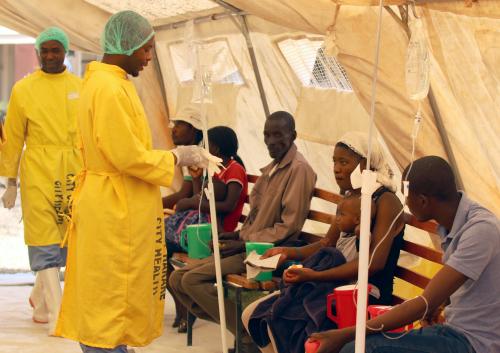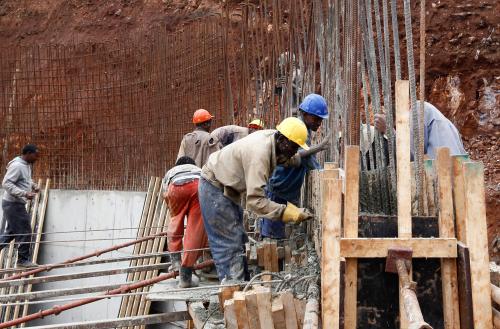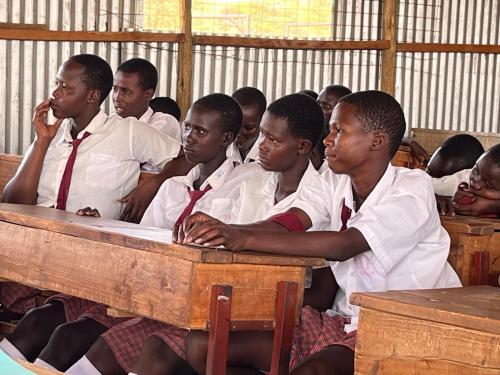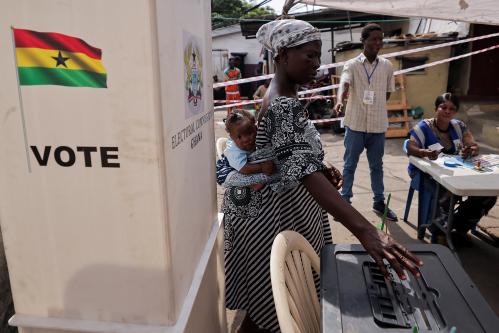Kenya proposes rate cap repeal and Tanzania includes tax amnesty in tax bill
Last week, Kenya’s Finance Minister, Henry Rotich released the government’s budget proposal for 2018-2019, which includes repeal of the rate cap law and raises or levies several new taxes. The rate cap law, introduced in 2016, caps the interest rate banks can charge borrowers at 4 percentage points above the central bank rate. Private sector credit growth slowed sharply following the law’s implementation, and the International Monetary Fund has demanded that the law be repealed before Kenya can access its balance of payments support. The proposal faces opposition in parliament with lawmakers worrying that banks will raise interest rates putting credit out of reach for most people.
Tax revenues in 2018-2019 are expected to rise by 17.5 percent, equaling 20 percent of GDP. The budget proposal also raises the excise tax on mobile money transactions from 10 percent to 12 percent, which is expected to net billions of shillings in additional revenue. According to the finance minister, the additional excise tax revenue will fund the government’s universal health care program. However, the proposal has faced opposition from both consumer advocates and telecom companies arguing that this will raise the cost of living and hurt the poor most. Some of the new taxes proposed in the budget include a 35 percent import duty on secondhand clothing and footwear, a 5 percent capital-gains tax on property transfers, and a 0.05 percent transactions tax on transfers over 500,000 Kenyan shilling.
In other tax news, Tanzanian Finance Minister Philip Mpango also presented the country’s budget last Thursday, which included a tax amnesty proposal for the next six months. The proposal includes a 100 percent amnesty on interest and penalties. It is expected to boost tax compliance by 10 percent. The budget also cuts corporate taxes from 30 to 20 percent for new companies in the pharmaceuticals and leather industries for the next five years.
DRC President Kabila unlikely to run for third term
Last week, Democratic Republic of Congo’s Prime Minister Bruno Tshibala told Reuters that President Kabila would not seek re-election due to constitutional term limits. Presidential elections originally planned for November 2016 have been repeatedly postponed; raising the possibility that President Kabila would seek a third term. The presidential election is currently scheduled for December 23, 2018. Following the prime minister’s statement, lawmakers in parliament announced a special legislative session to consider a bill that will provide legal protections to ex-presidents. The constitution already protects former presidents, providing them broad immunity from prosecution for life. According to the speaker of the lower house, the special session is being convened “at the request of the president of the republic.” Previously, similar legislation providing increased legal protections for ex-presidents was introduced in 2015 but did not pass since it was not brought up for a vote in parliament.
Zambia introduces new austerity measures to deal with high debt level
On Thursday, June 14, Zambian President Edgar Lungu ordered several austerity measures to address the country’s worsening debt crisis. These measures include cancellation of some existing loans, a ban on the issuance of letters of credit and guarantees to state owned enterprises, termination of financing for projects below 80 percent completion, and reduction in ministerial travel. These steps come as the government reported that foreign debt increased from $8.7 billion to $9.3 billion between March 2017 and 2018. These austerity measures are likely to help Zambia in its ongoing negotiations for a $1.3 billion loan agreement with the IMF, which previously rejected the country’s borrowing plans in February. The IMF currently rates Zambia as having a high risk of debt distress. Earlier this year, foreign investors raised concerns about potential hidden debts in Zambia, similar to what happened in Mozambique. Addressing concerns about the debt situation, Finance Minister Margaret Mwanakatwe emphasized that the government has “reconciled all the debt with all our creditors and hereby confirm the debt position.”
Note: Kiara Rodriguez Gallego contributed to this post.
The Brookings Institution is committed to quality, independence, and impact.
We are supported by a diverse array of funders. In line with our values and policies, each Brookings publication represents the sole views of its author(s).








Commentary
Africa in the news: Kenya’s budget, DRC elections, and austerity measures in Zambia
June 22, 2018